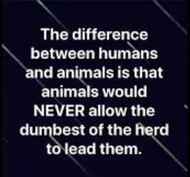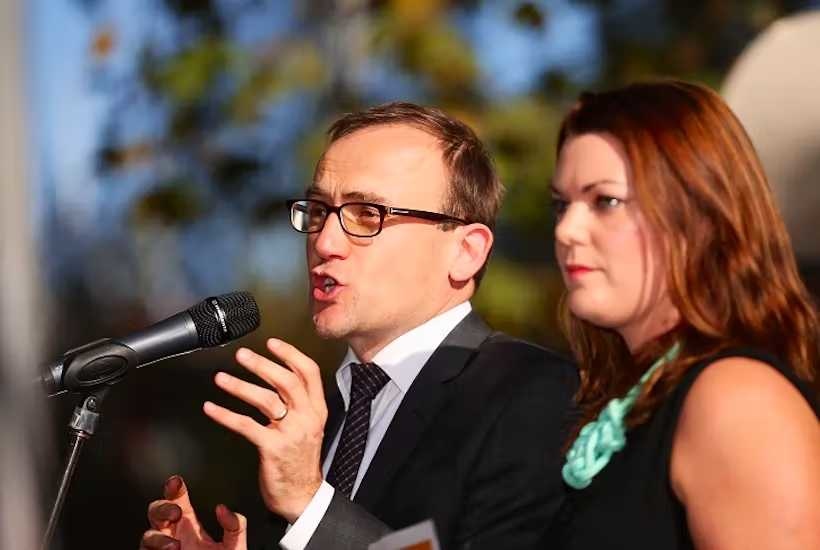
Until now, I have contributed to The Spectator Australia solely in my capacity as a Spokesperson for the Australian Monarchist League. After some thought, it now seems appropriate for me to extend my musings.
I have redrafted this article several times upon the advice of a friend, a former Professor of Music at the University of Melbourne. His main contention is that discourse nowadays is too fast and too sensational – that ideas are no longer communicated with erudition and are no longer given time to flourish or wither according to their merit. I totally agree with him and so I hope this article, without sacrificing any conviction, achieves a measured tone.
I was recently pleased to hear Senator Alex Antic decrying the state of education in our schools, citing in his speech several horror stories from parents. The examples are endless, but what we may resolve with total assurance is this: radical ideologies have hijacked our schools, and our children’s futures are in grave peril – or so say conservative politicians.
They are, of course, absolutely correct. But it is their prescription that misses the mark.
We are told that schools are the root of Australia’s socio-cultural degradation, and that if schools return to simply teaching knowledge and civics then, socio-culturally, the next generation might just have a hope.
I understand the electoral appeal in maintaining this line – it is a line that urgently demands constituents consider the wellbeing of children before casting their vote, and that’s powerful – but, ultimately, it is not a line that convinces me. It is a line we must also be careful not to trivialise for the sake of political expediency because it concerns a serious issue, and it is, I think, circumstantially viable. For I do not dispute that a return to knowledge and civics can only be advantageous; rather, I simply make this point:
Every radicalised school teacher, in addition to all those involved in administrating a school or implementing a primary or secondary curriculum, holds some kind of tertiary teaching degree – so where do you think their radicalism was sown and cemented?
It is not the schools but the universities that are responsible for the destructive political and socio-cultural crisis that plagues Australia today.
Everyone is going to university. At the end of 2021, a record 50.2 per cent of Australians aged between 15 and 74 held bachelor’s degrees. That is approximately a 500 per cent increase over the last twenty years. Moreover, 62 per cent of school-leavers intended to commence at university in 2021, whereas approximately only one-tenth were committed towards TAFE or college studies.
Therefore, if it is not already the case, we may conclude that it will not be long before the majority of eligible Australian voters hold a tertiary qualification.
Of course, this would be wholly inconsequential if universities were simply striving to teach and advance knowledge. But what was once the proud objective of the 11th century Bolognese, or the 12th century Oxonians, or the 13th century Parisians, is no longer the case. The overpowering priority in Australian universities seems to be this: disseminate radical sociological ideologies underpinned by, amongst other things, pseudo-morality, irresponsibility, hedonism, and victimhood as quickly as possible.
I could cite example after example until I turned blue in the face to justify this assertion; instead, it might be more revealing if we all simply seek out a relative or a friend and ask them for their worst university horror story. Because if ‘lived experiences’ are considered to be appropriate source material by today’s academic standards, then perhaps I should introduce into my argument that I am a recent graduate of several schools within the Arts faculty.
Nowhere is today’s radicalism more pervasive than in the Arts. Regrettably, this is another point that is often overlooked. The Arts are largely ignored by the political class – Tony Burke, who I must say went to this year’s federal election promising artists Nirvana Down Under, has even now begun to disappoint – when in fact it is the Arts that hold an incalculable influence over society. This is both a beautiful and terrifying reality. It is the Arts that brought us, for instance, Jane Eyre and To Kill a Mockingbird, but also Mein Kampf and The Communist Manifesto. More recently, whilst we might say that engineers did not conceptualise Black Lives Matter to the extent that Arts faculties did, they wasted no time in subscribing to the movement’s doctrine.
I clearly recall one of my undergraduate classes, which purported to concern English grammar. In this class, I was encouraged to submit my preferred pronouns, asked to cultivate a safe learning environment for my peers, asked whether I required any trigger warnings, permitted to allocate 10 per cent of my grade myself so long as I was honest, and assured that if my mental health were impaired one week I could consider some of the course’s assessment items as optional. When we finally did come to discussing semantics, one of the very first things the class was taught was that English grammar arose to separate the rich from the poor.
Thus, here are three summarised propositions I offer to readers:
More than half the country, virtually, holds a university degree.
Universities at large are teaching radical sociological ideologies.
Tertiary graduates (particularly graduates of Arts faculties) more often than not hold the greatest influence over society, determining its popular trends.
In these propositions, I think, there lies a recipe for total political domination. And that’s why I’m worried. Because, just as Labor has institutionalised the unions, the Greens have taken for themselves the universities.
Radical ideologies and the Australian Greens go hand in hand. Here are just a few positions they took to the federal election:
Ban the construction of new coal, oil and gas infrastructure.
Ban all political donations from the mining and resources sector and ‘other dirty industries’.
Unpack ‘white privilege’ and ‘white fragility’.
$1.07 billion to build First Nations owned healing places.
Amend section 44 of the Constitution so that dual citizens can run for Federal office.
End offshore detention on Manus Island and Nauru.
Reduce military spending to 1.5 per cent of GDP.
Introduce legislation that prohibits Australia exporting weapons.
Increase Australia’s humanitarian intake to 50,000 per year.
Appoint a Minister for Equality and an LGBTQ+ Human Rights Commissioner.
$15 million to facilitate transgender ‘surgical procedures’.
20 per cent of the Australian Public Service to be disabled by 2030, via quotas.
Cut $61 million for school chaplains (to ‘make schools safer’).
More importantly, though, these are, to me, the Greens’ most striking promises, and funnily enough they all have to do with education:
$19 billion for free childcare.
$49 billion for fully-free public schools.
$477 million to end rape culture in public schools.
Abolish student debt.
Lifelong free education for all.
Guarantee every student a liveable income.
10 per cent increase in university funding.
The Greens’ disproportionate prioritisation of the education sector, particularly the tertiary education sector, seems telling.
Moreover, in analysing the three Queensland seats that fell to the Greens – Brisbane, Ryan and Griffith – in accordance with 2021 Census data and themes previously discussed, we cement our argument further in fact.
Of the thirty Commonwealth divisions in Queensland, Brisbane, Ryan, and Griffith all have the highest populations of tertiary students. Brisbane leads the charge with 25,030 tertiary students. Griffith comes with 22,830 tertiary students and Ryan with 21,403 students. In comparison, the Queensland division with the smallest number of tertiary enrolees is Maranoa – but that’s still 5,302 students. Interestingly, Maranoa is the safest Liberal-National federal seat in Queensland.
Interestingly again, the five Queensland divisions with the smallest populations of tertiary students – Maranoa, Wide Bay (5,175), Kennedy (5,302), Flynn (5,456) and Hinkler (5,504), all saw first-preference swings to their respective Greens candidate between 1 per cent and 2 per cent; the exception is Wide Bay, which actually saw a first-preference swing against the Greens in the order of 0.5 per cent.
So, does correlation equal causation, or am I grasping at straws?
Of course, there is no way to be certain – but we’d be fools not to heed the warning laid bare before us. Australian politics is no longer organised within the framework of a two-party system, but rather a two-and-a-half-party system. The Greens function as a major political organisation, with the funds, media, manpower, and now universities as institutions to match. But they also masquerade as an insignificant, disorganised minor party that serves no other purpose than to facilitate protest votes or proxy votes for Labor. In the case of the latter, the Victorian state election in key seats like Glen Waverly and Ashwood demonstrates as much.
By my estimates, Labor’s short-term solution is to embrace a long-term catastrophe. Because the Victorian state election also shines a light on the former Labor seat of Richmond, a seat in which Labor’s first-preference vote decreased sharply by 11.6 per cent, and a seat that is now condemned to four years under the Green yoke.
If I could make two recommendations to my native Liberal Party, they would be this:
Look to the future of our country, and in so doing regard the Greens as the true Enemy. Labor is now the sparring partner.
Lay the groundwork to launch some sort of large-scale public inquiry, be it a Royal Commission or otherwise, into the ideological and commercial abuses of Australia’s tertiary institutions. Expose what goes on behind the closed doors of not all but so many lecture theatres.
In closing, let me offer this anecdote:
It was the night of the Victorian state election. As I shuffled by Flinders Street Station, I looked around, and it suddenly occurred to me that about me was nothing new. Socio-culturally, what difference is there between a city like Melbourne and 1930s Weimar? It is a ticking time bomb, a hive of irresponsibility parading as sophisticated society, and already the playpen of a puppeteering dictator. Of course, it is not the indoctrinated we should pursue. Rather, we must hold to account the anarchists responsible for their brainwashing, before it is too late for all of us.
Alexander Voltz is a composer and Spokesperson for the Australian Monarchist League. He is a member of the Liberal Party.













